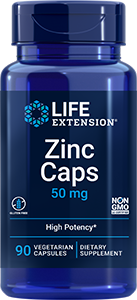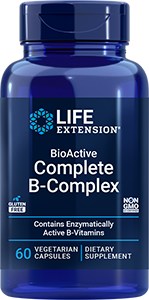
Newsletter
Newsletter
Carnitine supplementation associated with improvement of metabolic syndrome

November 17, 2020
A review and meta-analysis of randomized, placebo-controlled trials published on September 12, 2020 in the journal Nutrients found improvement in factors that characterize metabolic syndrome (MetSyn) among men and women given L-carnitine supplements.
Metabolic syndrome is determined by the presence of three or more factors that include high blood pressure, elevated fasting triglycerides, low levels of high density lipoprotein (HDL) cholesterol, increased abdominal circumference and high fasting blood glucose. The presence of metabolic syndrome is associated with an increased risk of developing type 2 diabetes and cardiovascular disease.
“This study is the first to investigate the effect of L-carnitine supplementation on the biomarkers of MetSyn,” authors Munji Choi of Sungshin Women’s University and colleagues announced.
Dr Choi and associates selected nine articles that reported the findings of trials that evaluated the effects of L-carnitine supplementation among 508 participants and reported data concerning fasting blood glucose, triglycerides, waist circumference, blood pressure or HDL cholesterol. L-carnitine doses ranged from 0.75 milligrams (mg) to 3 grams per day.
Supplementing with L-carnitine was associated with significant reductions in waist circumference and systolic blood pressure in comparison with the placebo groups. When studies that tested doses of 1 to 3 grams were analyzed, L-carnitine was additionally associated with a significant decrease in fasting blood glucose and triglycerides and an increase in beneficial HDL cholesterol. “Ultimately, 2–3 g/day of supplemented L-carnitine is recommended,” the authors remarked.
“L-carnitine supplementation is correlated with a significant reduction in waist circumference and blood pressure,” they concluded. “Additionally, L-carnitine supplementation at a dose of 1–3 gram/day could improve MetSyn by reducing fasting blood sugar and triglycerides and increasing HDL cholesterol.”
Products
Apply What You’ve Learned: Carnitine
- Carnitine is a dipeptide produced from the amino acids lysine and methionine and is found in most cells of the body.1
- Like many amino acids, carnitine exists in D (right-handed) and L (left-handed) forms, but it is the L form of carnitine that plays a role in nutrition.
- Carnitine transports fatty acids into the mitochondria of the cells, which enables mitochondria to break them down to produce energy.2
- L-carnitine, acetyl-L-carnitine, and propionyl-L-carnitine are available as dietary supplements.
References
- Carnitine, Fact Sheet for Health Professionals. National Institutes of Health. Office of Dietary Supplements. Updated October 10, 2017. https://ods.od.nih.gov/factsheets/Carnitine-HealthProfessional/
- Pekala J et al. Curr Drug Metab. 2011 Sep;12(7):667-78.
Featured Life Extension Magazine® Article
Artificial Intelligence Identifies Longevity Pathways
by Celia Stanton
Metformin is a drug prescribed to diabetics to help improve insulin sensitivity and lower blood glucose. It accomplishes this through several mechanisms, including stimulation of an increase in the activity of AMPK, which has been associated with increased life span in animal models. It also activates the enzyme SIRT1, which helps balance another enzyme known as MTOR and has been associated with longevity. This has led to the consideration of metformin’s use as a potential life-extending compound for diabetics and nondiabetics alike.
Using artificial intelligence (A.I.), researchers have identified several nutrients that activate some of the same mechanisms as metformin. One compound is withaferin A, found in ashwagandha, an herb used in Ayurvedic medicine that increases AMPK signaling and inhibits mTOR. Another is ginsenoside Rg3, a compound occurring in the popular herb Panax ginseng. Ginsenoside Rg3 activates SIRT1 and helps maintain a healthy level of inflammation in the body.
The third nutrient is the fatty acid gamma-linolenic acid (GLA), which occurs in borage seed oil and evening primrose oil. Gamma-linolenic acid also supports a healthy level of inflammation.
What's Hot
Health Concern
Decreased acetyl-L-carnitine levels associated with depression
The August 21, 2018 issue of the Proceedings of the National Academy of Sciences reported a link between low levels of acetyl-L-carnitine and a greater risk of depression.
Cholesterol Management
Emerging research into underappreciated aspects of cholesterol biochemistry has revealed that levels of cholesterol account for only a portion of the cardiovascular risk profile, while the properties of the molecules responsible for transporting cholesterol through the blood, called lipoproteins, offer important insights into the development of atherosclerosis.
Related Life Extension Magazine® Articles
Carnitine Restores Cellular Function
Carnitine levels decline with age. The result is reduced cellular energy production—a major cause of degenerative disease. A wealth of published data documents the ability of carnitine to improve insulin sensitivity, mitochondrial function, and cardiovascular health.
Why Aging Humans Need More Carnitine
Advanced carnitine formulations improve cellular energy while supporting optimal brain function, protecting critical heart muscle, fighting sexual dysfunction, and stimulating nerve cell growth.
Life Extension Magazine® Issue Now Online
A remarkable number of healthy-longevity findings have been published over the past 18 months.








